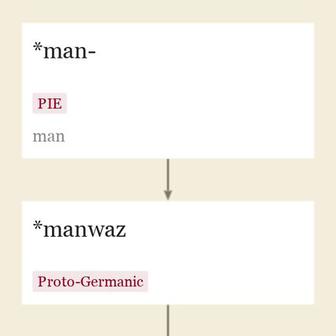landsman n.
1590s, "
Entries linking to landsman
Old English lond, land, "
Etymological evidence and Gothic use indicates the original Germanic sense was "

"
Sometimes connected to root *men- (1) "
Specific sense of "
Man also was in Old English as an indefinite pronoun, "
As "
Man-about-town "
So I am as he that seythe, 'Come hyddr John, my man.' [1473]
MANTRAP, a woman's commodity. [Grose, "Dictionary of the Vulgar Tongue," London, 1785]
At the kinges court, my brother, Ech man for himself. [Chaucer, "Knight's Tale," c. 1386]
Proto-Indo-European root meaning "
It forms all or part of: alderman; Alemanni; fugleman; Herman; hetman; landsman; leman; man; manikin; mannequin; mannish; mensch; Norman; ombudsman; yeoman.
It is the hypothetical source of/evidence for its existence is provided by: Sanskrit manuh, Avestan manu-, Old Church Slavonic mozi, Russian muzh "
updated on April 30, 2016